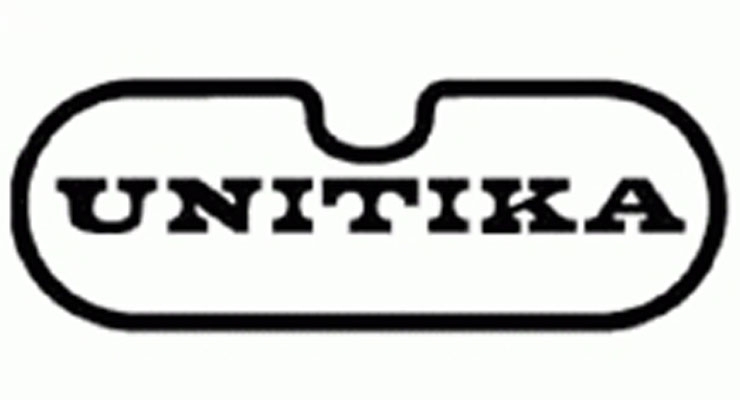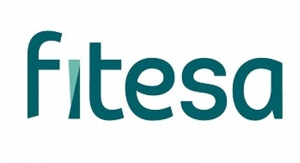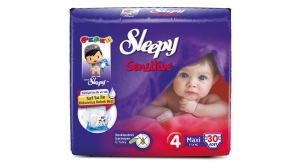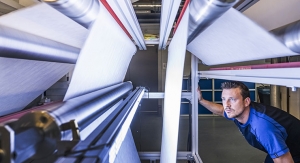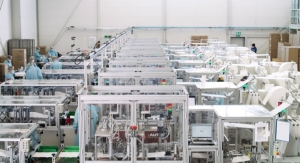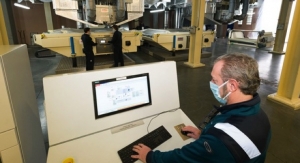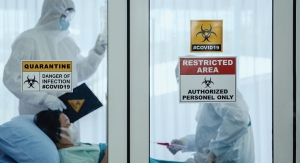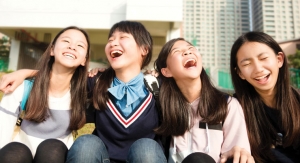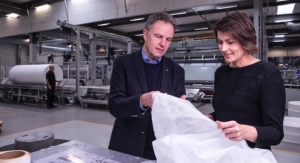09.12.17
Osaka, Japan
www.unitika.co.jp
2017 Nonwovens Sales: $127 million
Key Personnel
Tetsuya Yoshimura, general manager, nonwoven fabrics division; Naoki Yamane, general manager, spunbond fabrics sales; Hiroshi Mayuzumi, general manager
Plants
Okazaki, Tarui, Japan
Processes
Spunbond, spunlace
Brand Names
Marix, Eleves, Appeal, Wiwi Alcima, Dilla, Terramc, Cottoace
Major Markets
Agriculture materials, carpet backings, geotextiles, cable wraps, wipes, storing bags, cover stock roofing sheets
Unitika manufacturers polyester spunbond nonwovens and spunlace fabrics in Japan and Thailand. It can make 20,000 tons of PET spunbond nonwovens per year in Japan as well as 10,000 tons per year at its Tusco subsidiary in Thailand. This capacity was expanded from 6000 tons per year in April 2017 with a 5.8 meter wide spunlace line capable of making core sheet type fibers. The majority of nonwovens is exported to China, Southeast Asia, Europe and the U.S.
Unitika also makes 5000 tons per year of spunlaced nonwovens. Additionally its joint venture with Marusan Industry makes 5000 tons of spunlaced nonwovens. The company mainly uses cotton fibers in spunlace. Much of this cotton is sourced from Marusan.
In 2017, sales of both PET spunbond nonwovens and spunlaced nonwovens increased. Domestic sales of polyester spunbond nonwovens benefited from gains in building and agriculture while spunlace growth was driven by products for skin care use.
Unitika also makes materials for cars like engine covers, fender liners and under covers with polyester spunbond nonwovens using Tusco. The nonwoven is a core sheath type composite fabric, which is composed of a core made of polyester and sheath made of PET with a lower melting point.
The fabric is needlepunched and molded with a heat press machine then the sheath part melts by heating and fiber fuses and the nonwoven fabric is formed. When the nonwoven fabric is thick, heat could not pass through to the inside and the internal layer offers improved processing and better reliability.
www.unitika.co.jp
2017 Nonwovens Sales: $127 million
Key Personnel
Tetsuya Yoshimura, general manager, nonwoven fabrics division; Naoki Yamane, general manager, spunbond fabrics sales; Hiroshi Mayuzumi, general manager
Plants
Okazaki, Tarui, Japan
Processes
Spunbond, spunlace
Brand Names
Marix, Eleves, Appeal, Wiwi Alcima, Dilla, Terramc, Cottoace
Major Markets
Agriculture materials, carpet backings, geotextiles, cable wraps, wipes, storing bags, cover stock roofing sheets
Unitika manufacturers polyester spunbond nonwovens and spunlace fabrics in Japan and Thailand. It can make 20,000 tons of PET spunbond nonwovens per year in Japan as well as 10,000 tons per year at its Tusco subsidiary in Thailand. This capacity was expanded from 6000 tons per year in April 2017 with a 5.8 meter wide spunlace line capable of making core sheet type fibers. The majority of nonwovens is exported to China, Southeast Asia, Europe and the U.S.
Unitika also makes 5000 tons per year of spunlaced nonwovens. Additionally its joint venture with Marusan Industry makes 5000 tons of spunlaced nonwovens. The company mainly uses cotton fibers in spunlace. Much of this cotton is sourced from Marusan.
In 2017, sales of both PET spunbond nonwovens and spunlaced nonwovens increased. Domestic sales of polyester spunbond nonwovens benefited from gains in building and agriculture while spunlace growth was driven by products for skin care use.
Unitika also makes materials for cars like engine covers, fender liners and under covers with polyester spunbond nonwovens using Tusco. The nonwoven is a core sheath type composite fabric, which is composed of a core made of polyester and sheath made of PET with a lower melting point.
The fabric is needlepunched and molded with a heat press machine then the sheath part melts by heating and fiber fuses and the nonwoven fabric is formed. When the nonwoven fabric is thick, heat could not pass through to the inside and the internal layer offers improved processing and better reliability.

